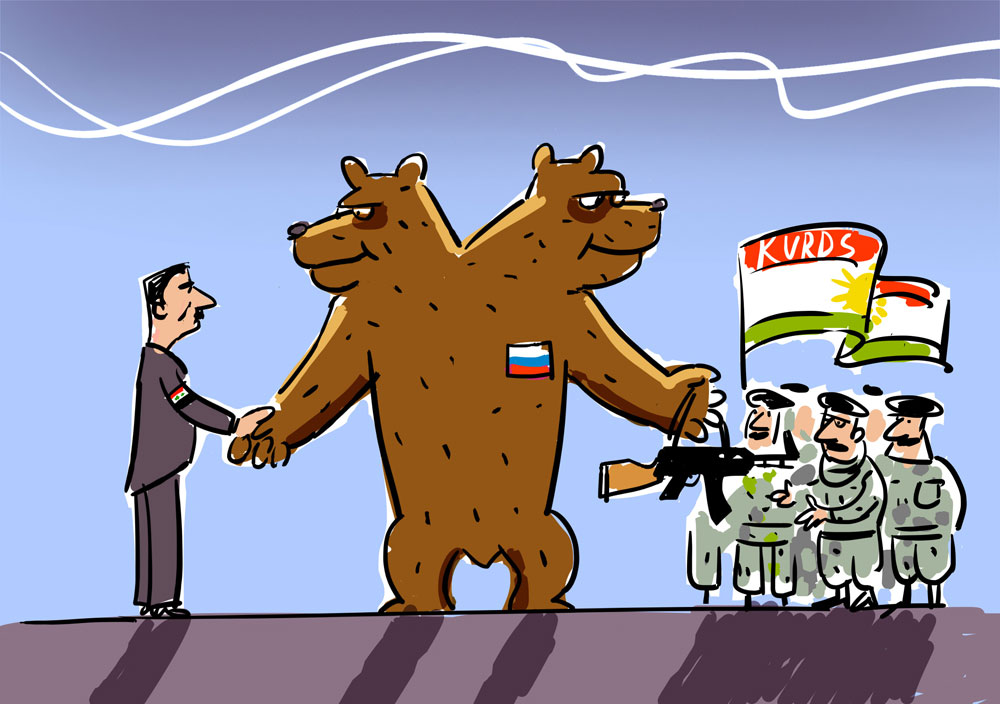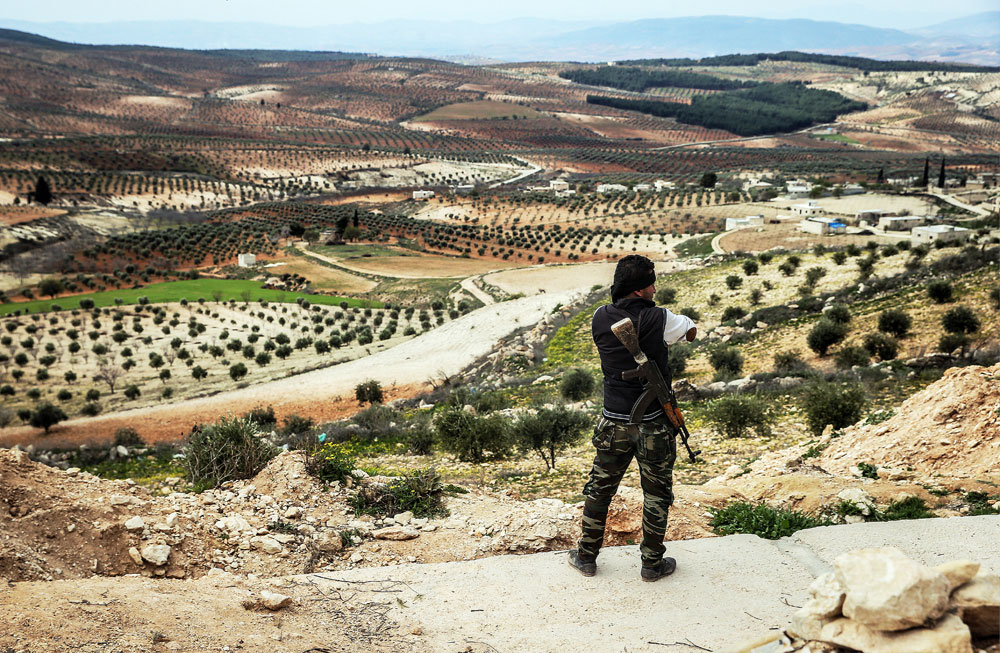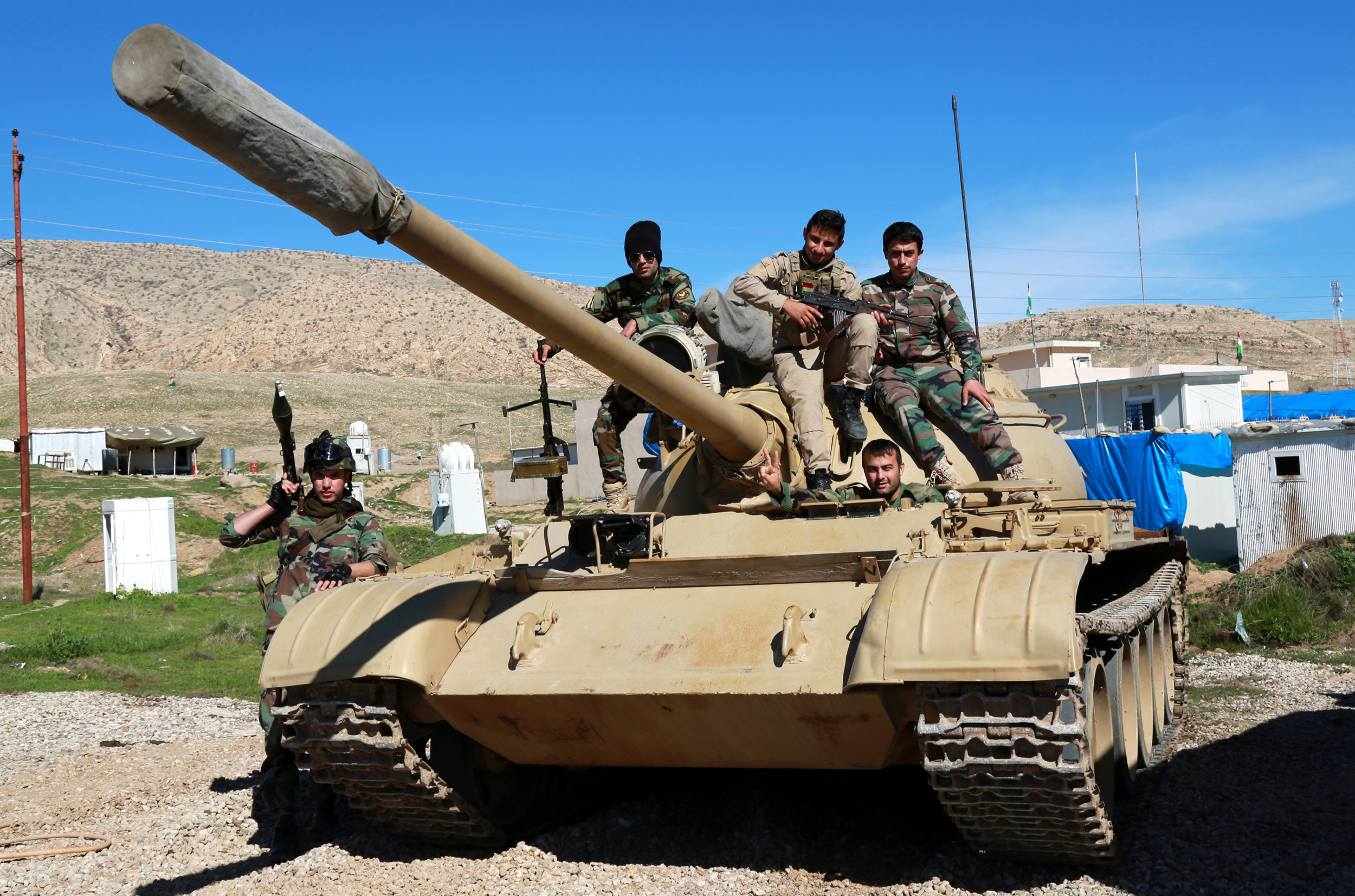Why Moscow supports Syrian Kurdistan

Drawing by Iorsh
The Syrian conflict has lasted for over five years. Moscow's support for the Syrian Kurds during this period has been a tactical instrument and is largely opportunistic, with Russia remembering them mainly after the breakdown in relations with Turkey in November 2015.
Moscow understands that Turkey always reacts tempestuously to any issue related to the Kurds. Russia's initiative to open the (first in the world – RIR) Syrian Kurd representative office in Moscow in mid February this year says for example that Russia primarily wishes to prick Turkey.
The Syrian Kurds' weakness
Syrian Kurds for Turkey represent no more than an irritating factor: Within the Kurdish movement the Syrian Kurds constitute only a peripheral structure and, within the Syrian domestic political context, they do not play the role that they play in Iraq and Turkey. Also, they are dependent on the Iraqi Kurds and on their organizations; primarily on the Kurdistan Democratic Party and on the clan of Iraqi Kurdistan's president, Massoud Barzani.
Given these circumstances, Syrian Kurds would not be able to promote Russian regional interests. This is why Moscow is unlikely to have a long-term strategy concerning them.
The fight against ISIS
However, for Russia, the Kurds' fight against terrorists of Islamic State (ISIS) is very important. Among all domestic political forces of Syria, the Kurds are crucial participants in the fight against the radical Islamists.
Their position will remain unchanged since many of them are not Muslims but Yazidis, an ethnic-religious group that practices a religion some say is based on Zoroastrianism. From the viewpoint of radical Islamists, the Yazidis are heretics who must either be destroyed or converted to Islam.
Between two sworn allies
The Syrian Kurds are also creating difficulties for Russia by disrupting the harmonious ties that Moscow currently enjoys with the al-Assad regime. This is obviously related to them declaring the establishment of a Kurdish federative region in the north of Syria, which basically implies the de facto partitioning of the country.
Regarding the federalization of Syria, Moscow has found itself in a difficult position since both the Kurds and the Assad government are Russia's allies. Moscow, in such a situation, is stuck between two sworn allies. Since Russia is by and large indifferent about whether or not Syria will be federalized, it will have to find the right words to keep both allies appeased.
Assistance to the Kurds
Russia has a significant arsenal of resources to help the Syrian Kurds, from diplomatic support to supplying weapons. In particular, Moscow helps the Kurds with its air force, with those forces that remain in Syria.
Yet, the U.S. also helps the Kurds, giving them more space for manoeuvring and weakening their dependence on Russia. So Russia must find the right tactic in this complex situation. The situation is not made any simpler by the fact that neither Russia nor the USSR earlier hadany experience with this ethnic group. Moscow only had close ties with the Iraqi Kurds.
The most difficult aspect of this situation is the tension between the Syrian government and the Kurds. The latter will doubtless remind Damascus of the 1962 census, which did not take into consideration a large part of the Syrian Kurds, as well as the operations of 1963 and 1986 in which Kurds were killed.
The Syrian Kurds are now trying to strengthen the existing status quo. They have conquered territory but are not participants in the Geneva talks. That is why they are trying to become a participant of Syria's regulation process. Hence, their demand for federalization.
In such a context Russia presents itself as a sort of guarantor, a co-sponsor of the Geneva process and a mediator, and will not make any drastic moves.
Sergei Demidenko is a Middle East expert and professor at the Russian Presidential Academy of National Economy and Public Administration’sInstitute of Social Sciences.
The opinion of the writer may not necessarily reflect the position of RIR or its staff.
All rights reserved by Rossiyskaya Gazeta.
Subscribe
to our newsletter!
Get the week's best stories straight to your inbox

